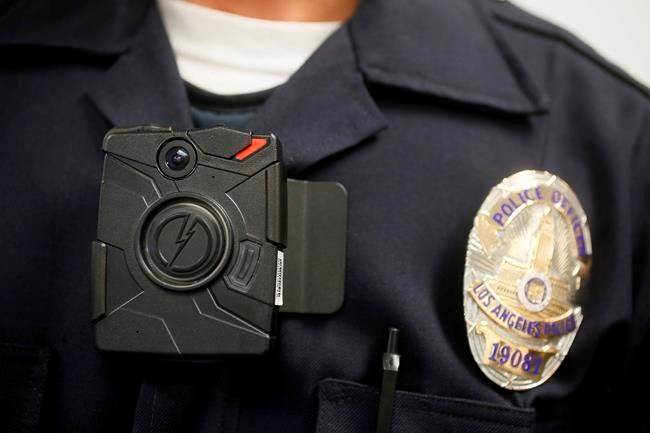Guelph police are planning to buy body cameras for frontline officers to wear.
But it won't happen until at least 2018 as the force waits for guidelines and protocols to be clarified on the devices.
The Guelph Police Service's 10 year capital budget presented to the Guelph Police Services Board on Thursday budgeted $75,000 for the purchase of police body cameras in 2018.
"There's a lot of positives," Chief of Police Jeff DeRuyter said.
"It's about accountability. We're out there in the community and it's important that we capture those interactions, even for the protection of our officers."
What is needed, the chief said, is a better understanding of how the body cameras would be utilized, what privacy issues exist regarding their use — both from a citizen and officer perspective — and functionality issues, such as if officers have the authority to turn them off.
"I support the use of them. There's great value in them, but we have to figure out the rules around privacy and things like do they run full time? What are those rules?" the Chief said.
"It's about getting it right in terms of how we establish how they're used," DeRuyter said.
The cost of the cameras is relatively cheap. The additional costs come in storage of data and staff to manage that data, he said.
Body cameras are also a useful training tool and DeRuyter said the force regularly uses body camera footage from the United States to help train officers.
He agreed that body cameras would be a tool in the tool box, but not the definitive word on any police interaction.
DeRuyter said he isn't concerned the police associations would be against body cameras.
"At times it's important that we have that information to provide an accurate picture of what's occurred, and if our officers are professional and it's captured as such, I think it's a benefit.
"It's not about Big Brother, it's really about capturing and expecting our officers being professional or when they are unprofessional."
There will also be input from the province on their use and he said the local force wants to be ready should the province instruct forces to use them.
